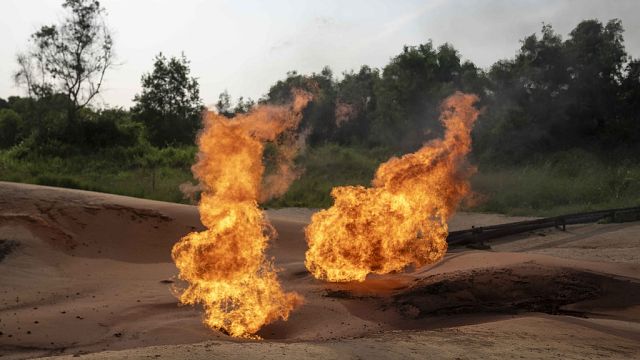Across the United States, thousands of candidates will put themselves before voters on November 5 as they seek election to positions ranging from U.S. senator to city mayor to local tax collector.
This year, the big race is for U.S. president. But unlike in countries with parliamentary systems where voters have only a few items or even just one race on which to vote, American voters often have pages-long ballots and lots of decisions to make.
This time, 34 of the 100 members of the U.S. Senate are up for election, seeking six-year terms. And voters in each of the nation’s 435 congressional districts will choose their member of the U.S. House of Representatives for a two-year term. The party that wins a majority of Senate or of House seats will control the respective chamber. That means, for instance, that whichever party has a majority in the House will choose the speaker of the House and the body’s various committee chairmanships.
Beyond the presidential contest
The U.S. electoral system is very decentralized. On November 5, voters across the country will all have the presidential race on their ballots, but beyond that, their ballots will differ based upon the offices being selected in their particular jurisdiction.
Some state and local ballots will ask voters to decide questions such as whether to borrow money for projects like new fire stations. Some states are choosing a governor or state legislators. Finally, there are localities choosing mayors or city council members.
“You have all sorts of people being elected. We have more election days (including primaries) and very long ballots and more choices,” says John C. Fortier, senior fellow at the American Enterprise Institute, a think tank.
At the state level, this year features 11 gubernatorial races. But that’s just a drop in the bucket of the total state executive races. Many states split the executive power up among other top offices, such as lieutenant governor, attorney general, secretary of state, treasurer and even agriculture commissioner. A total of 167 of these state executive jobs are up for a vote this Election Day.
What’s more, nearly 80% of the state legislators across the country also face the voters — more than 5,800 in all, according to Ballotpedia.
Some states and localities elect judges instead of appointing them. And towns and cities elect mayors, city council members, school boards, library trustees, sheriffs and even dogcatchers, Fortier says. This year, 371 mayors will be elected, though some of those votes are held before or after the November 5 Election Day.
While presidential campaigns get the most attention, state and local elections matter too.
“What a president does on a day-to-day basis doesn’t affect people’s lives like local and state governments do,” explains Stella Rouse, political science professor at Arizona State University.
All the attention on this year’s close presidential race can boost voter turnout, which can mean more people paying attention to local politics and issues closer to home, like which streets get repaired or whether a new school is built.
Federalism on display
The U.S. system of sharing power among different levels of government is based in the Constitution, which divides power between state-level and federal-level officials. The states, in turn, share their authority with local governments.
“There are some things you want to coordinate at the national level,” like national defense, says Josh Chafetz, a law professor at Georgetown University. “There are plenty of other policies for which there’s no reason they should be uniform everywhere. What federalism does, in theory, is allow both.”
A benefit of federalism is that voters in each state get to choose, for instance, whether they want a high level of services and higher taxes in their state … or the opposite.
Federalism can lead to conflict between state and national officeholders but also leads to better policies, according to Rouse. “Dividing power and the constant push and pull between national and state governments is a good thing,” she says. “When you go through that process, what comes out as policy is about as good as you can get.”
The post What else is on the ballot November 5? appeared first on The Herald ghana.
Discover more from HOT SOURCE NEWS
Subscribe to get the latest posts sent to your email.


